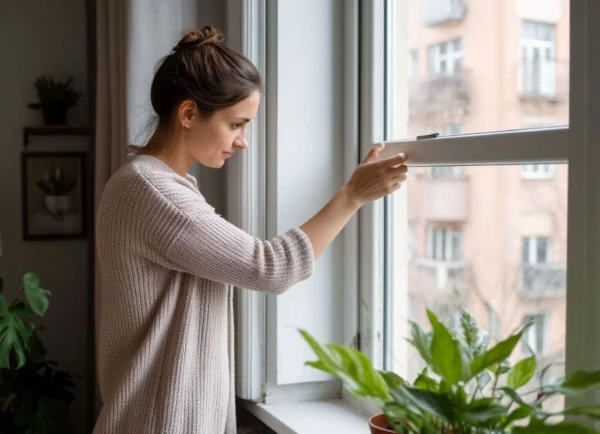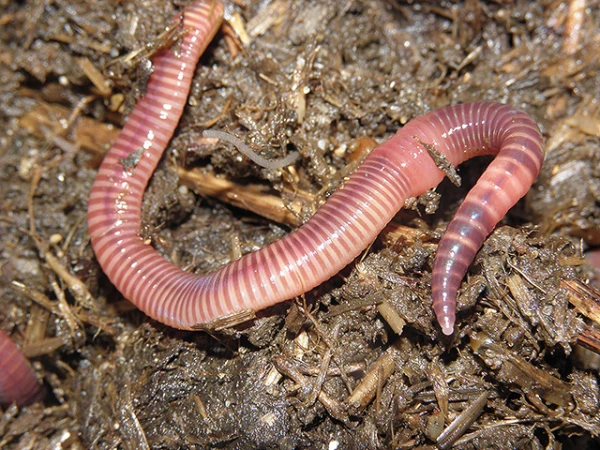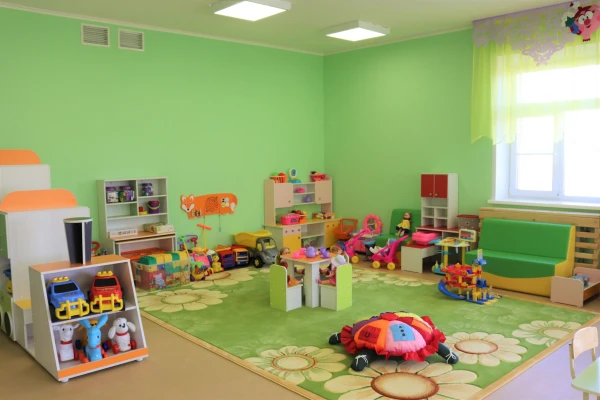
Even if there is no unpleasant smell in the house and the air seems "clean," it may actually contain a lot of things (from dust and micro-particles to chemicals and gases) that you definitely won’t like. All of this enters the air as a result of the most ordinary activities: cooking, cleaning, renovating, using cosmetics, or air fresheners.
The problem is that these invisible pollutants can seriously affect the heart, lungs, brain, and even the hormonal system over time. Here are several reasons why the air in your apartment may be dirtier than outside.
1. Emission of chemicals from finishing materials and furniture
After renovation or purchasing new furniture, the indoor air quality can noticeably deteriorate — not due to odor, but because of chemical compounds released from coatings, paints, and adhesive resins.
The so-called new smell is a mixture of volatile organic compounds that settle on surfaces and remain in the air for months, sometimes even years. Particularly persistent compounds are found in mattresses and flooring, where flame retardants and plasticizers are used.
To reduce the concentration of these substances, it is advisable to ventilate rooms thoroughly after renovation and furniture purchases. It is better to keep new items on the balcony or in a well-ventilated room for a while — this will help to quickly eliminate residual vapors and reduce the burden on the respiratory system.
2. The impact of gas stoves on indoor air quality
When a gas stove is in operation, tiny soot particles and nitrogen dioxide — a gas that irritates the respiratory tract and can enter the bloodstream — are released into the air. Prolonged exposure to these substances is associated with an increased risk of respiratory diseases, especially in children.
Even if the kitchen is equipped with a modern stove, it is important to ensure effective ventilation: turn on the exhaust fan every time you cook or open a window. If possible, consider switching to an electric or induction stove — this significantly reduces the level of air pollution in the home.
3. The effect of scented candles and incense
Candles, incense sticks, and aromatic oils create a pleasant atmosphere, but when burned, they release soot particles and volatile organic compounds. Incense is often more harmful than candles, as it burns longer and releases more toxic compounds.
To maintain comfort without compromising air quality, it is better to use candles made from natural soy or beeswax with cotton wicks. An even safer option is to replace burning with aromatic diffusers or sprayers with essential oils. It is also important to regularly ventilate the room to prevent the accumulation of residual odors and particles.
4. The infiltration of polluted outdoor air into living spaces
Even with closed windows, outdoor air containing exhaust gases, dust, and combustion products can enter the home. This is especially noticeable in areas with heavy traffic, near industrial zones, or with neighboring chimneys and stoves.
To reduce the impact of external pollutants, it is recommended to ventilate rooms during times of lower traffic — early in the morning or late in the evening. An effective solution could be an air purifier with a HEPA filter, which traps fine particles and helps maintain optimal air quality in an urban environment.
5. Chemical exposure from cleaning products
Even household products labeled as "natural" can emit volatile organic compounds, and aggressive cleaning agents even more so. These substances irritate mucous membranes and can cause headaches and coughing with regular use.
It is safer to use simple yet effective agents: baking soda, vinegar, and lemon juice. They clean just as well but do not pollute the air. During cleaning, it is helpful to open windows or turn on the exhaust fan to allow residual vapors to dissipate quickly.
6. The evaporation of chemicals from garages and utility rooms
If the garage adjoins the living area, vapors from gasoline, solvents, or paints can seep into the house through microcracks and ventilation ducts. Benzene is particularly dangerous — a carcinogenic compound associated with blood diseases.
To prevent contamination, all chemicals should be stored separately, for example, in a shed, outside, or in a well-ventilated area, but not in an attached garage. This will reduce not only the risk of inhaling toxic vapors but also the likelihood of fire.
7. The spread of mold, viruses, and bacteria through the air
Excessive humidity promotes the growth of mold and fungi, which release spores and degrade air quality. They can cause allergic reactions, irritation of mucous membranes, and weaken the immune system. A similar effect is created by viruses and bacteria, which easily spread through the air.
Maintaining optimal humidity levels between forty and fifty percent and regularly ventilating bathrooms, kitchens, and utility rooms helps prevent the development of microorganisms. It is equally important to clean air conditioner and ventilation system filters at least once a season.
8. Air pollution from using wood-burning fireplaces
Fireplaces create a cozy atmosphere, but burning wood releases soot particles and carbon monoxide. With insufficient draft, smoke can return to the room, increasing the concentration of pollutants.
To reduce risk, the fireplace should be used moderately, always with a window open or the exhaust fan on. Regular chimney cleaning prevents soot buildup and improves ventilation.
9. Biological pollutants: pets and houseplants
Pets, like plants, can be a source of micro-particles in the air. Fur, dander, and pollen accumulate on furniture and carpets, increasing allergen concentrations.
Regular care for pets, washing their bedding, and using an air purifier help maintain cleanliness. For decoration, it is advisable to choose plants and flowers with low pollen content.















Leave a comment